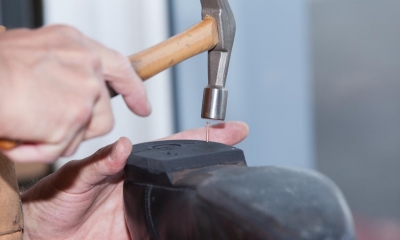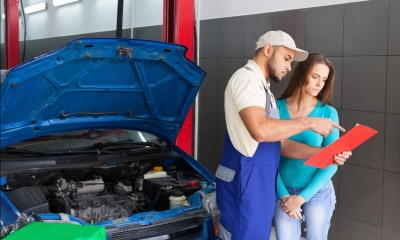
There is a range of legislation which may apply to your fencing business, particularly in the areas of health and safety and possibly employment law.
The following is an outline of some of the main areas which may well be relevant to you.
What licences does a fencing contractor need?
There are no specific licences that you will need to work as a fencing contractor, so if your business activities are going to fall within the usual range of services offered by this type of business you may not need to do anything further.
Building waste
If you are going to transport building waste and rubble, which is classified as a controlled waste, you will need a certificate of registration as an upper tier waste carrier ('waste carrier' in Scotland). Old fencing removed from a site would be classified as a controlled building waste. Certificates are issued by:
- the Environment Agency in England
- Natural Resources Wales
- the Northern Ireland Environment Agency
- the Scottish Environment Protection Agency (SEPA) in Scotland
They currently cost about £155 for the initial registration fee (a bit more in Scotland, a little less in Northern Ireland) and a further renewal fee of about £105 after every three years.
Other licences
You should also be aware of the following:
- if your business operates goods vehicles with a gross plated weight of more than 3.5 tonnes (or unladen weight more than 1,525 kg for unplated vehicles) then it will need a goods vehicle operator licence in England, Scotland and Wales. In Northern Ireland you may need a goods vehicle operator's licence from the Transport Regulation Unit (TRU) of the Department for Infrastructure (DfI). More information about goods vehicle operator licensing is available on the Gov.uk website - and from the DfI website in Northern Ireland
- anyone who sells, advises on, arranges or assists in selling general insurance may need to be authorised and regulated by the FCA even if insurance is only a small part of their business. For example, many insurance backed warranties are classed as general insurance products for the purposes of this regulation. Contact the FCA for further information
Note that skips placed on a public highway require a highway permit from the local authority. In some cases, a controlled parking permission is also required. Charges for these licences vary - your local authority will be able to give you details of charges that apply in your area. If you hire skips, ask the hire company who is responsible for obtaining the necessary licences and permits.
Voluntary certification
Many would-be customers will want to satisfy themselves that your business does good quality work using safe techniques and suitable materials. Business clients like building contractors and organisations like local authorities, the Ministry of Defence and the Highways Agency are particularly likely to want evidence that your business works to a high standard.
One way of demonstrating your commitment to quality is to gain certification for your workmanship. Various different certification schemes exist, including the Fencing Industry Skills Scheme (FISS), British Standards and the ISO quality standards. The Association of Fencing Industries (AFI) has negotiated discounts for its members with a number of industry partners who provide ISO 9001 and ISO 14001 services.
The Association of Fencing Industries (AFI) operates the Certified Contractor scheme for contractors who meet the necessary criteria, with four different colour-coded levels of certification appropriate to different types and scales of project. The scheme is open to members and non-members. You can find out more on the AFI website.
The Contractors Health and Safety Assessment Scheme (CHAS) enables construction industry and related contractors to demonstrate to would-be clients that they meet the required workplace and site health and safety standards. Participating in this pre-qualification scheme can save time when tendering for work from the public sector and other large organisations. There is more information on the CHAS website.
Although it's not mandatory for operators of plant machinery to hold a skills registration card, it's a good way of showing that your business complies with the requirement under the Health and Safety at Work Act for plant operators to be suitably trained. More and more contractors, clients and sites only permit plant operatives who hold a valid skills registration card or 'ticket'.
The skills body CITB offers one of the best known card schemes, the Construction Plant Competence Scheme (CPCS). You can find out more about the CPCS on the CITB website.
Like some other areas of the construction industry, the fencing industry has its fair share of rogues and cowboys who do shoddy work, overcharge and are in many cases just downright dishonest. More and more Trading Standards departments throughout Britain participate in the Buy with Confidence (BwC) Trading Standards Approved scheme, through which participating traders are vetted and approved to ensure they operate in a legal, honest and fair way. Joining the scheme can help to reassure would-be customers that you're a trustworthy business - find out more about membership on the BwC website.
The environment
The Environmental Protection Act and regulations made under it apply to the transport and disposal of building, demolition and excavation waste. Environmental legislation also covers a range of other matters, including potential pollutants and nuisances like noise and dust. More information and guidance on environmental protection legislation is available on the Gov.uk website.
Health & safety, fire
The Construction (Design and Management) Regulations specifically cover health and safety issues within the construction industry. Some key areas where health and safety regulations affect your business, particularly if you employ staff, include:
- lifting heavy items
- working near fast moving traffic or railway tracks
- use of electrical equipment (power tools and so on)
- use of drilling and cutting equipment
- working with potentially hazardous materials and substances (such as paints and wood preservatives)
- access to first aid equipment
- adequate provision and use of protective clothing and equipment
- reporting of any accidents and injuries at work
Health and safety legislation requires operators of machinery like construction plant to be properly trained and qualified. Skills registration card schemes like the Construction Plant Competence Scheme (CPCS) run by CITB enable employers to show that their plant operators are properly qualified. You can find out more about the CPCS on the CITB website.
You must comply with workplace health and safety and fire safety legislation.
Employment legislation
Anyone employing staff must comply with employment legislation. Important areas of legislation include:
Recruitment and employment contracts
Working time: hours, leave, flexible working
Maternity, paternity and adoption
Managing home workers, remote workers, lone workers
Consumer protection
Most people have heard stories about 'cowboy' trades-people and there is consumer legislation to protect customers from unscrupulous practices. Legislation covers fair trading generally, and specific areas such as contracts, goods and services being of adequate quality, accurate descriptions in advertising material and so on. Make sure that your own products, services and terms of trade meet all the necessary legal criteria - this should go without saying in a sound business!
More information about many different aspects of fair trading and consumer protection legislation is available on the Trading Standards Business Companion website. There's also information and guidance available on the Gov.uk website. Your local authority Trading Standards Department should be able to help if you have a specific query about how consumer protection legislation affects your business.
Other matters
If you think that your business is likely to do work on public highways (for example installing road fencing and crash barriers), or on listed buildings and/or those located in conservation areas, then it would be useful to become familiar with relevant legislation including street-works regulations, local planning regulations and any local bye-laws. Your local authority planning department and highways department should be able to advise you on these matters.
Sources of further information
Most trade associations can advise their members about regulatory issues that affect them. For example, the FCA has free legal and health and safety advice helplines for members, with experts on construction and employment law available.
The employing people section of the Gov.uk website includes information and guidance on all aspects of employment legislation. Information for businesses in Northern Ireland is available on the NI Business Info website.
Insurance for a fencing contractor
When you start up in business you will need insurance cover. Contact an insurer and explain exactly how your business will operate. They will then be able to recommend what cover you should have, which might include:
- employer's liability
- public liability
- professional and contract indemnity
- product liability
- legal expenses cover
- tools, plant and equipment on site
- motor insurance (for business vehicles), possibly with cover for goods and equipment carried in your vehicles
- personal cover - accident and injury, loss of earnings and so on
- business interruption
- premises and premises contents (if you have any premises)
When taking out personal and employer's liability cover it is particularly important to give precise details of the types of activity that you and any staff will be engaging in. Be prepared to answer questions about the type of work you will be doing, where you will be working, the type of materials and equipment you will be using, your health and safety policy and so on.



